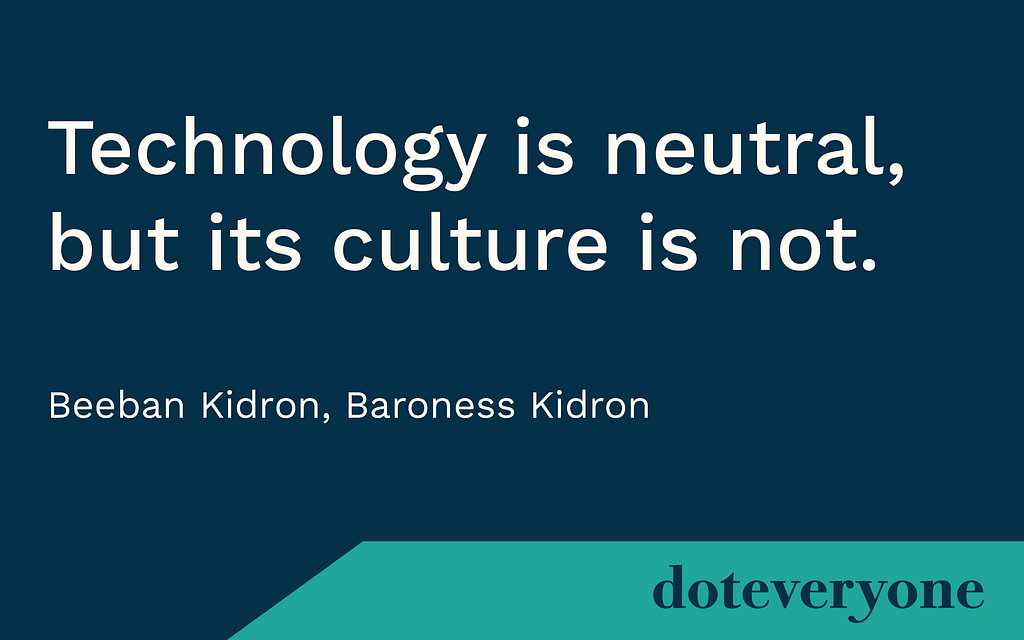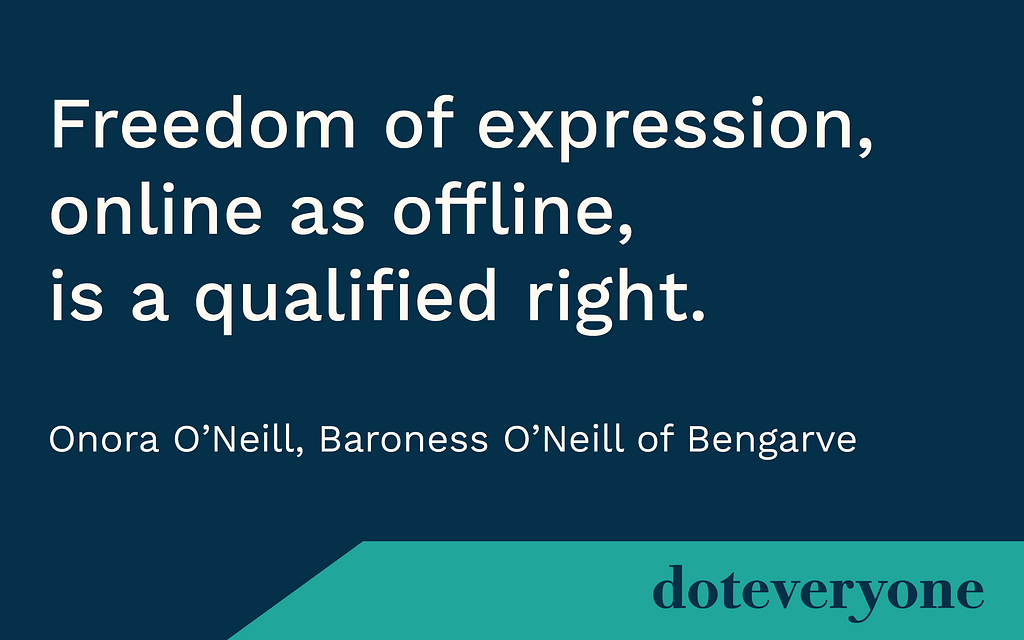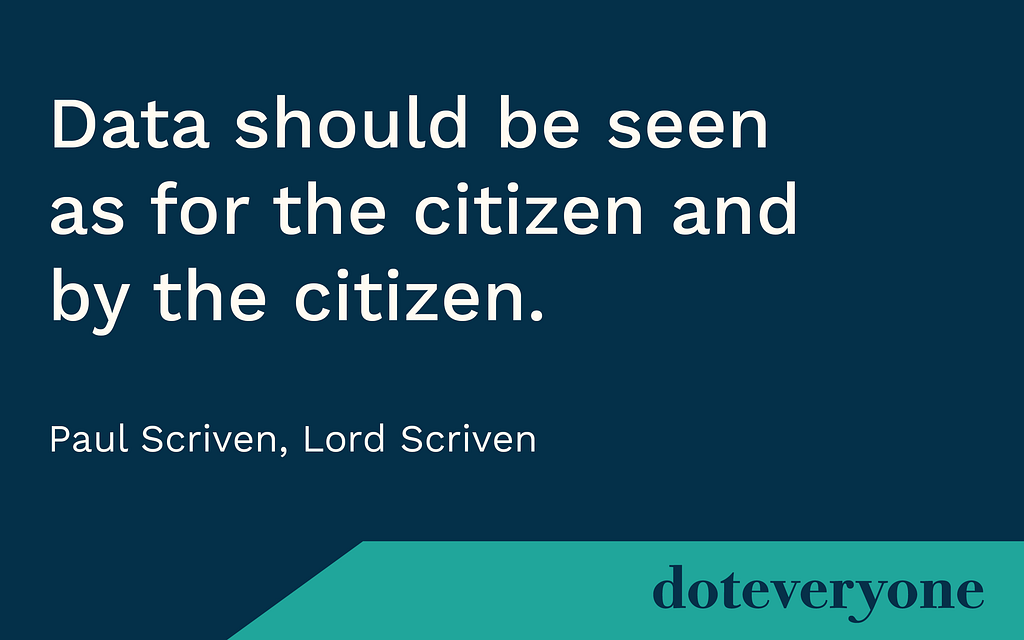Highlights from the House of Lords digital understanding debate
On 7th September, our founder and executive chair Martha Lane Fox moved a debate in the House of Lords — her first since 2014. The topic was:
That this House takes note of the case for improved digital understanding at all levels of United Kingdom society.
(You can read the full text of Martha’s speech here, or get an intro to digital understanding here.)
34 members of the Lords spoke that day, including a composer, a neuroscientist, the Astronomer Royal, a filmmaker, a bishop and Alan Sugar. Here are some of the highlights.
Culture and values
How can digital understanding help us build a 21st century Britain?
- Lord Knight of Weymouth talked about how people deserve to know what kind of rules they’re subject to — whether that’s laws passed by the government or terms and conditions from companies.
- Baroness Kidron called out the “awkward tension” between tech that helps society and tech companies that avoid doing their due diligence. In order to protect our values, she argued, we have to first figure out what they are.

- Lord Giddens talked about how we need to remember our humanity amidst all our technological marvels. “It is a whole new world,” he said, “which we are being plunged into at almost the speed of light”.
- Baroness Worthington brought up the rise of fake news and hypertargeted advertisements on our culture — especially on our confirmation biases.
Governance
What role should digital understanding play in making policies that are fit for the future?
- Lord Kirkwood of Kirkhope called for a collective within the Lords to build their own digital understanding, noting that it’s not fair to legislate digital-first solutions if you yourself can’t understand how to use them.
- The philosopher Baroness O’Neill of Bengarve focused on regulations. Although recognising there still exist “cyber romantics”, as she called them — people who believe in an entirely unrestrained internet — she spoke out in favour of sensible regulation not rooted in any one country or set of political values.

- Baroness Harding of Winscombe (a Doteveryone trustee) used driverless cars as an example of how much regulation we’ll need to develop in the future. New forms of technology need new regulation in order to bring them successfully into society.
- Baroness Finn reminded the Lords about the work GDS is doing, and warned them about sliding backwards into old ways of thinking and working.
- Lord Scriven bemoaned “the lack of a design-led and innovation culture”, and talked about how digital understanding needs to incorporate modern approaches to public service design and delivery.

- Lord Clement-Jones reminded the Lords of the Lib Dems’ call for a Digital Bill of Rights.
Infrastructure
What physical structures do we need in place to build digital understanding?
- Earl Cathcart and Baroness Murphy pointed out that although there is investment in high-speed broadband, more rural parts of the country still lack even basic connection speeds.
- Lord Mair, an engineer, talked about how it’s not just new builds that can benefit from tech; internet-enabled sensors can help protect the country’s existing bridges and tunnels, alerting us when they’re under stress.
Inclusion
How can understanding help us build a digital society for everyone?
- The Lord Bishop of St Albans brought up how the pace of digitisation risks leaving the marginalised even further behind. He called for the government to help communities get access to high-speed internet — not simply the right to request it.
- Lord Addington, a disability campaigner, pointed out the importance of designing for all — especially those with blindness, low vision and learning disabilities that make reading difficult.
Security
How can digital understanding help keep us safe?
- Baroness Jones of Moulsecoomb focused on safety, both online and off. That means both getting the police ready to fight cybercrime and preventing situations like the Met using controversial facial recognition technology to find criminals.
- Lord Stevenson of Balmacara called for more digital understanding around our personal data — who controls it, where it’s stored and how it’s shared.
Skills and training
How do digital skills and digital understanding connect?
- More than half of Lords speaking mentioned the importance of education and training, both in school and throughout life.
- Lord Baker of Dorking said any government digital strategy would be “undermined” if we can’t manage to fill our skills gap.
- Lord Patel talked about how an NHS able to take advantage of technology-enabled care can drive lower costs and better outcomes for patients.
Response from the minister
What does the government have to say about digital understanding?
- In his response, DDCMS’s Parliamentary Under-Secretary Lord Ashton of Hyde referenced three of the government’s goals for building a digital Britain: strengthening the digital economy, continuing to emphasise skills and making Britain the safest place to be online. He also noted the government’s plans for a data use and ethics board.
- Because the debate ran long, the minister wasn’t able to address all questions immediately. He pledged to follow up with all those who hadn’t had their questions answered.
Highlights from the digital understanding debate was originally published in Doteveryone on Medium, where people are continuing the conversation by highlighting and responding to this story.